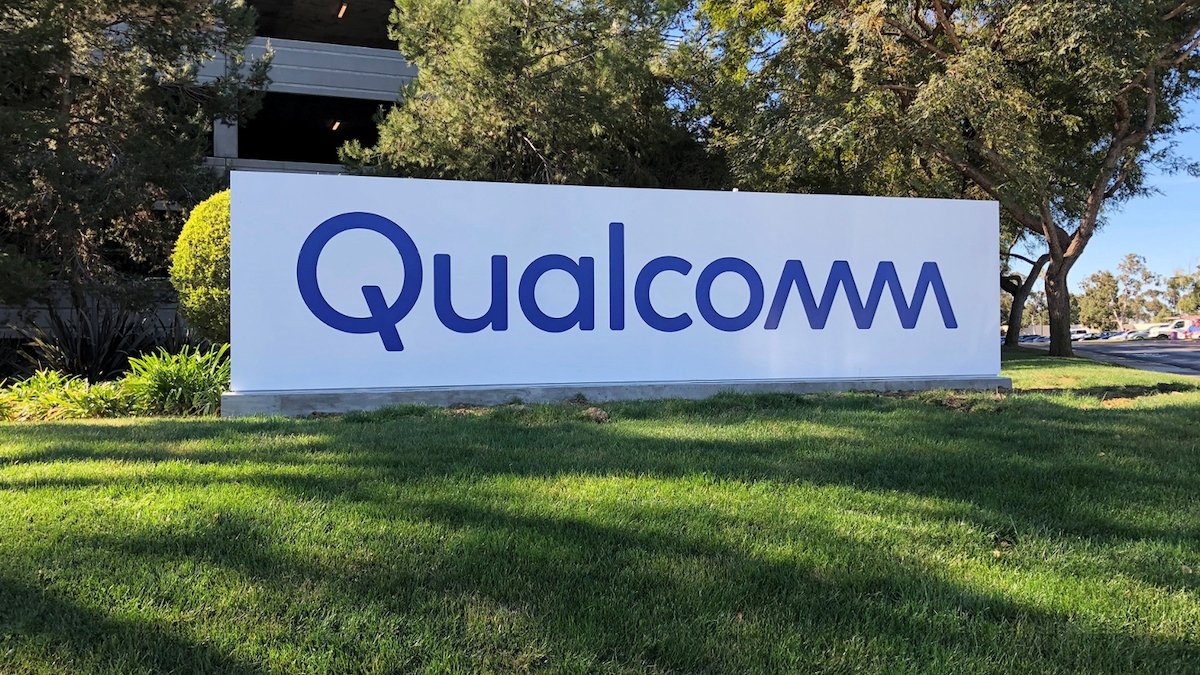Qualcomm says its Apple Silicon rival chips will be in PCs by late 2023
Nuvia Arm processors from Qualcomm are now said to be on track for shipping in PCs by late 2023, making the company behind schedule to compete with Apple Silicon.

Credit: WikiMedia Commons
In November 2021, Qualcomm predicted that it would take nine months for its newly-acquired Nuvia Arm processors to take on Apple's M-series chips. That would mean at least testing the processors in 2022, with shipping products expected to be in 2023.
According to Tom's Hardware, however, Qualcomm's president and CEO Christian Amon has confirmed that "development is on track, and we expect to have [the processors] in late 2023."
Amon also said that Qualcomm's use of the Nuvia-designed processor was specifically because the company is "going after the performance tier."
Qualcomm bought Nuvia for $14 billlion in 2021. Chip designer Nuvia was founded by former Apple employees, which has led to a series of legal issues.
Previously, Qualcomm's predictions for the Nuvia processors have centered on it being a way to make Windows laptops that rival Apple's M1 chips in the MacBook Pro. However, Apple has already said that it will be making no more versions of the M1, and the expectation is that by 2023 it will already be on to an M2, or even M3.
Read on AppleInsider

Credit: WikiMedia Commons
In November 2021, Qualcomm predicted that it would take nine months for its newly-acquired Nuvia Arm processors to take on Apple's M-series chips. That would mean at least testing the processors in 2022, with shipping products expected to be in 2023.
According to Tom's Hardware, however, Qualcomm's president and CEO Christian Amon has confirmed that "development is on track, and we expect to have [the processors] in late 2023."
Amon also said that Qualcomm's use of the Nuvia-designed processor was specifically because the company is "going after the performance tier."
Qualcomm bought Nuvia for $14 billlion in 2021. Chip designer Nuvia was founded by former Apple employees, which has led to a series of legal issues.
Previously, Qualcomm's predictions for the Nuvia processors have centered on it being a way to make Windows laptops that rival Apple's M1 chips in the MacBook Pro. However, Apple has already said that it will be making no more versions of the M1, and the expectation is that by 2023 it will already be on to an M2, or even M3.
Read on AppleInsider

Comments
Qualcomm doesn't have to beat Apple to succeed, they just have to beat Intel. Major factors affecting this outcome include:
1. Do they get strong support from Microsoft?
2. Does TSMC retain the process lead over Intel?
3. Do developers port and optimize?
My guesses:
1. Sort of...
2. Yes.... barely
3. Some key developers do... most second tier don't
And so the result will be:
moderate success, enough to keep trying.
1. 100% support for Apple Silicon from Apple Operating Systems
2. Yes... barely
3. There's going to be only one CPU architecture to support on the Mac, and that's ASi. So Mac developers will support ASi. There's really no choice.
But it's not hopeless for Qualcomm -- they just have to keep plugging away, much as AMD has had to over the years. If the Nuvia chips are consistently better than x86 year after year, MS and developer support will eventually emerge.
What makes you think there's 40%+ margin on M Series CPUs? What makes you think Microsoft would support Windows on M Series CPUs (they haven't on the Mac yet...)?
Apple has never been, and never will be a component vendor, especially for competitors. Apple pays someone else to make Apple designed components for Apple products.
PERIOD.
They stated late, 2023 for consumer product release. M1 mini & MacBook Air were released late 2020 (got mine November, 2020).
There's a second goofy mistake in your post, but I'm not going to waste my time correcting you.
On whatever platform (OS)/architecture, you just log in with your Microsoft O365 credentials, in the Office apps.
There are a number of SOCs on the market, and who knows how many embedded systems. Are companies waiting around for Qualcomm to deliver something special, when there are many suppliers already?
Qualcomm will have to bring something very special to the table have an effect.